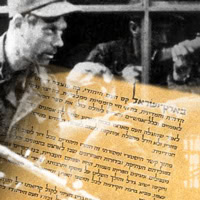New York City
Jews and Power: Literature, Philosophy, Politicsעברית
Between the destruction of the Second Temple in 70 CE and the founding of modern Israel nearly two millennia later, the Jewish people survived without a national home. During those many centuries, Jewish language and literature, Jewish law and customs, together sustained Jewish communities dispersed throughout the known world. For the last many centuries—before the founding of modern Israel—the extraordinary achievements of the Jewish people and their prodigious contributions to Western civilization have all taken place without the one thing that most defines a nation: the political and military power to protect its citizens in a sovereign land.

As a result, Jewish thinkers and writers reconceived the meaning of their nation in manifestly moral and communal rather than political terms. Without the mechanisms of government or self-defense, Jewish communities fell prey to the dangers of powerlessness. Generations of exilic Jews sought to live as “a light unto the nations,” seeking toleration and protection from their host rulers. But their political dependency left diaspora Jews vulnerable to being scapegoated—a tendency that has persisted despite the resumption of Jewish sovereignty in Israel.
With the return of sovereignty, what is the proper relation of Judaism and Jewish tradition to political and military power? Does the history of Jewish thought entail a distinctive approach to the responsibilities of leadership and statecraft? How does the literature, culture, and ritual life born in exile relate to the modern Jewish reality, with the Zionist State at the center and yet with significant populations of Jews still living as minority communities in sometimes friendly, sometimes tolerant, sometimes hostile states?
Led by Harvard University professor Ruth Wisse, Israeli intellectual and Mida editor Ran Baratz, and former deputy national security adviser and Middle East expert Elliott Abrams, this course will explore the dilemmas of Jewish power. Drawing upon the Hebrew Bible, modern Jewish literature, biographies of Jewish statesmen, and various historical case studies, we will explore both the spirit of the Jewish mind and the realities of the modern Jewish political condition.
Time and Location
This institute will take place at the Tikvah Center in the heart of New York City (165 E. 56th Street). This is a full time commitment for Monday – Friday, with required sessions in the morning, afternoon, and some evenings.
